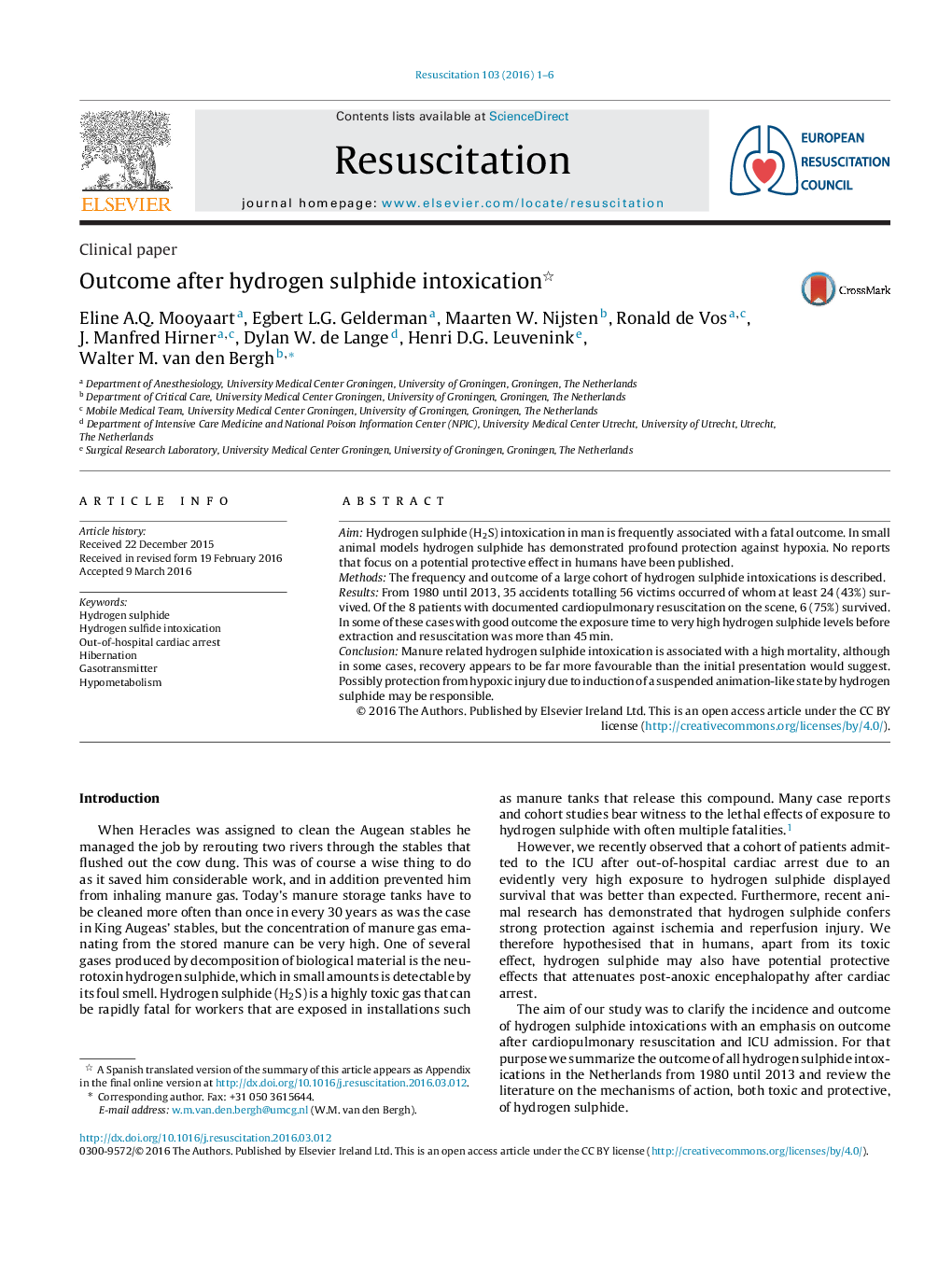| Article ID | Journal | Published Year | Pages | File Type |
|---|---|---|---|---|
| 5997051 | Resuscitation | 2016 | 6 Pages |
AimHydrogen sulphide (H2S) intoxication in man is frequently associated with a fatal outcome. In small animal models hydrogen sulphide has demonstrated profound protection against hypoxia. No reports that focus on a potential protective effect in humans have been published.MethodsThe frequency and outcome of a large cohort of hydrogen sulphide intoxications is described.ResultsFrom 1980 until 2013, 35 accidents totalling 56 victims occurred of whom at least 24 (43%) survived. Of the 8 patients with documented cardiopulmonary resuscitation on the scene, 6 (75%) survived. In some of these cases with good outcome the exposure time to very high hydrogen sulphide levels before extraction and resuscitation was more than 45Â min.ConclusionManure related hydrogen sulphide intoxication is associated with a high mortality, although in some cases, recovery appears to be far more favourable than the initial presentation would suggest. Possibly protection from hypoxic injury due to induction of a suspended animation-like state by hydrogen sulphide may be responsible.
